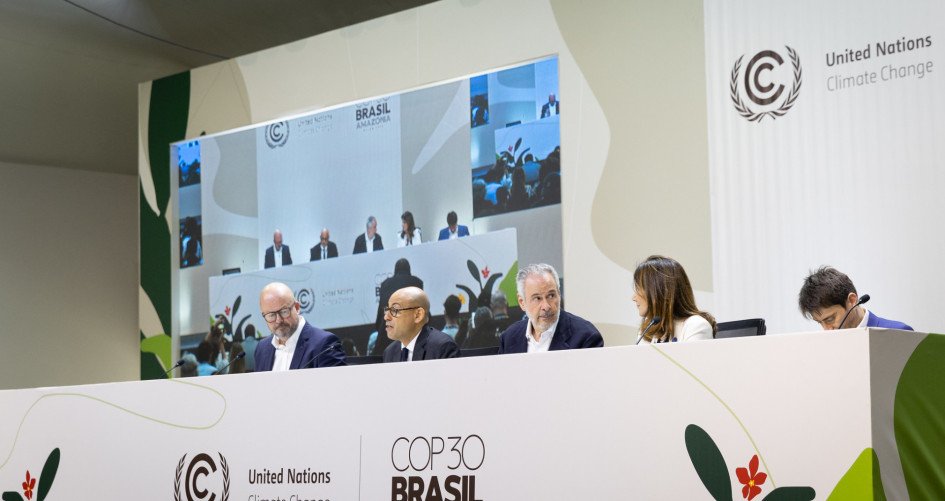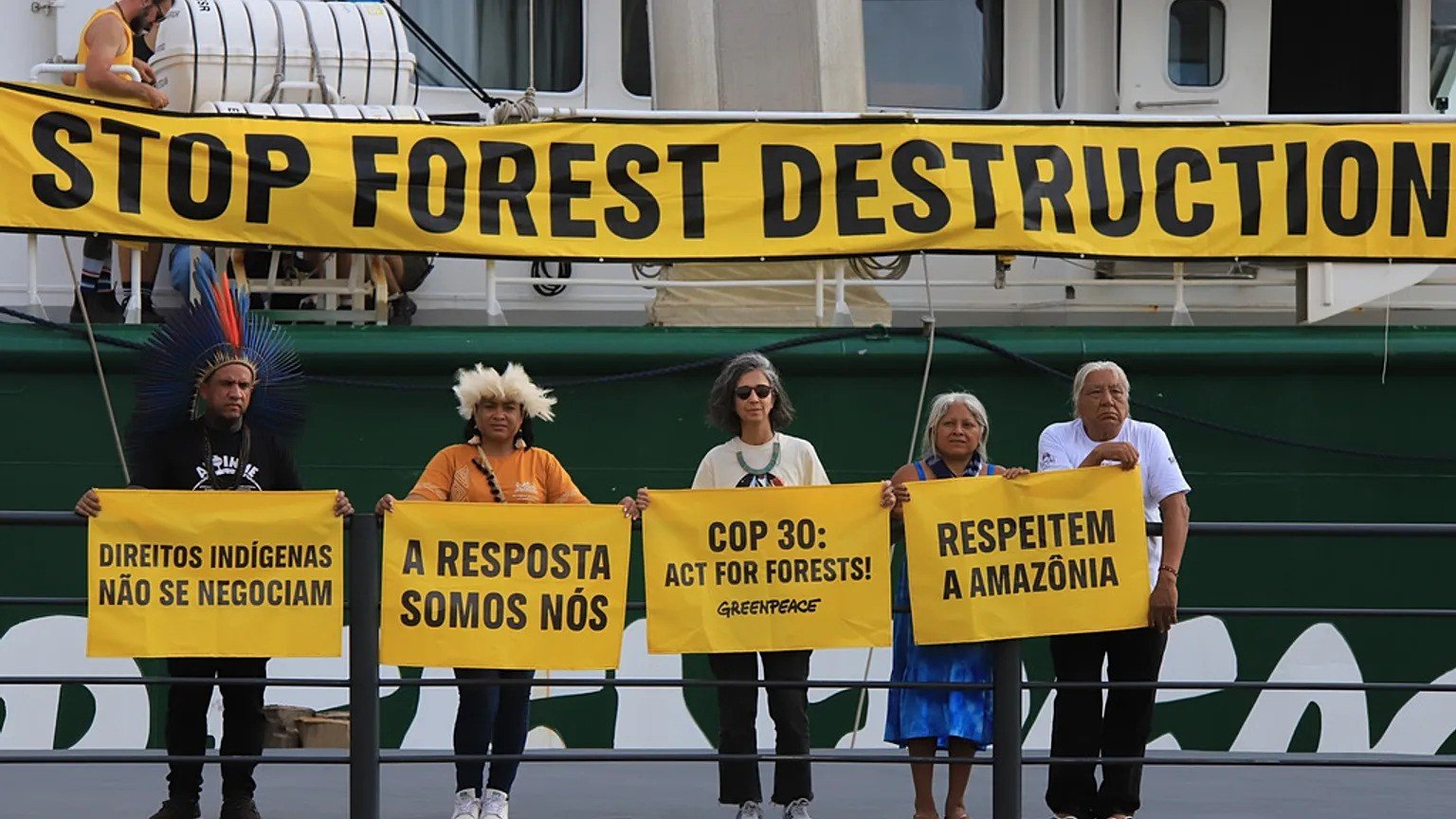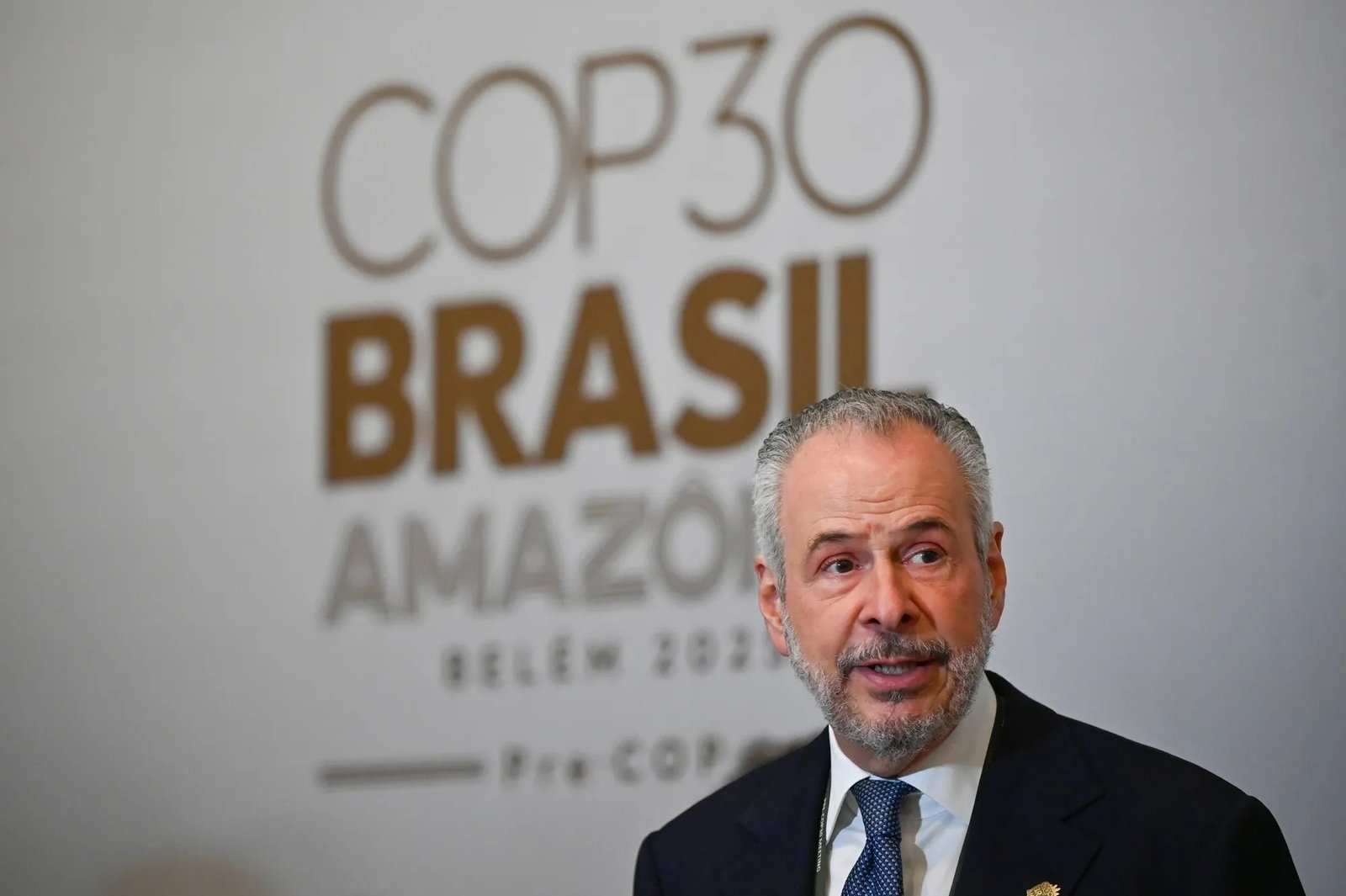
Dhaka, November 11, 2025 (EP Desk) - Brazil, the host nation, wants this summit to push back against climate denialism and attacks on science
The COP30 climate conference kicked off in Belém, Brazil, with President Luiz Inácio Lula da Silva pushing back against climate deniers even though a discussion of reduced reliance on fossil fuels isn’t on the agenda.
U.N. climate negotiations began Monday on the edge of the Brazilian Amazon as leaders pushed for accelerating efforts to curb global warming by drastically reducing the carbon pollution that causes it. But top U.S. negotiators were absent.
Negotiators can't forget that "the climate emergency is an increase of inequality," host President Luiz Inacio Lula da Silva told them. He said he picked the host city of Belém instead of "a finished city" to drive home the impact that warming has on the Amazon and on poverty.

"The increase of the global temperature is spreading pain and devastation especially amongst the most vulnerable populations," he told the conference known as COP30.
This year's talks aren't expected to end with any ambitious new deal. Instead, organizers and analysts frame this year's conference as the "implementation COP." Countries had homework: Show up with their updated national plans to fight climate change.
Attendees on Monday stressed cooperation. Individual nations can't cut emissions of heat-trapping gases fast enough, said U.N. climate secretary Simon Stiell.
"Your job is to fight this climate crisis together," Stiell told negotiators.
Andre Correa do Lago, president of this year's conference, emphasized that negotiators must engage in "mutirão," derived from a local Indigenous word that refers to a group uniting for a task.
Complicating those calls is the United States, where President Donald Trump has long denied the existence of climate change. His administration did not send high-level negotiators and is withdrawing for the second time from the 10-year-old Paris Agreement, the first global pact to fight climate change.
The Paris Agreement was supposed to limit warming to 1.5 C above the historical average, but many scientists now say it's unlikely countries will stay below that threshold.

The United States has put more heat-trapping carbon dioxide into the air from the burning of coal, oil and natural gas than any other country. China is the No. 1 carbon polluter now, but because carbon dioxide stays in the air for at least a century, more of it was made in the U.S.
"COP30 will be the COP of truth," Lula said. "They attack institutions, they attack science and universities. Now it's the moment to impose a new defeat to the denialists."
Palau Ambassador Ilana Seid, who chairs the Alliance of Small Island States, said the U.S. withdrawal "has really shifted the gravity" of the negotiating system.
Trump's actions damage the fight against climate change, former U.S. Special Envoy for Climate Todd Stern said.
"It's a good thing that they are not sending anyone. It wasn't going to be constructive if they did," he said.
Though the U.S. government isn't showing up, some attendees including former top U.S. negotiators are pointing to U.S. cities, states and businesses that they said will help take up the slack.
Lula and Stiell said the 10-year-old Paris Agreement is working to a degree, but action needs to be accelerated. They pointed to devastation in the past few weeks including Hurricane Melissa in the Caribbean, typhoons smashing Vietnam and the Philippines and a tornado ripping through southern Brazil.
Scientists have said extreme weather events have become more frequent as Earth warms.
"Climate change is not a threat of the future. It is already a tragedy of the present time," Lula said.
COP30 Opening Day
The 30th iteration of the United Nations climate conference — COP30 — opened today in the Amazonian city of Belém with an atmosphere that blended optimism with grave warnings. With nearly 190 countries gathered, the summit was formally inaugurated by the host country, followed by a press briefing led by the Presidency of COP30 and the Executive Secretary of the United Nations Framework Convention on Climate Change (UNFCCC).

Opening Program Highlights
• The official opening plenary featured remarks by Brazil’s President Luiz Inácio Lula da Silva, who described the Amazon site of the conference as symbolising both the planet’s greatest natural heritage and its most urgent climate challenge. He said: “COP30 must be the COP of truth… We cannot wait for tragedy to impose change.”
• The Presidency of the summit, led by André Corrêa do Lago, successfully navigated a potentially divisive agenda setting process today. While some countries submitted new agenda-items (on finance, trade measures and ambition for 1.5°C), Brazil brokered a compromise whereby the main agenda was adopted as planned, and the contested items will be subject to dedicated consultations.
• Delegates entered the Blue Zone and Green Zone of the venue with high expectations: over 145 agenda items are scheduled for discussion across thematic areas such as adaptation, technology, cities & infrastructure, and nature-based solutions.
Presidency Press Briefing
At 1:15 pm local time the COP30 President André Corrêa do Lago and UNFCCC Executive Secretary Simon Stiell addressed the media. Key points from the briefing included:
• Stiell emphasized that the Paris Agreement is showing early signs of delivering results: “We are now bending the curve of planet-heating emissions downwards… But we must move much, much faster.”
• The new analysis presented showed that updated NDCs (Nationally Determined Contributions) would result in a ~12 % reduction in emissions by 2035 (compared to 2019 levels) — up from earlier projections of ~10%. While this is progress, it still falls short of the ~60 % reduction scientists say is needed to keep 1.5 °C alive. ?
• President Corrêa do Lago confirmed that the contentious agenda items on climate finance, trade measures and transparency will be handled via consultations and a “stock-taking plenary” scheduled for later in the week. He reaffirmed the motto of Belém: “your job here is not to fight each other — your job here is to fight the climate crisis together.” ?
Key Observations
•By adopting the agenda smoothly, the COP30 presidency signalled a desire for a more streamlined negotiation process. Still, major fault lines remain – especially on finance (Article 9.1 obligations), fossil fuel transition and trade-related climate measures.
• The emission reduction number (~12 %) reflects improved pledges, but the gap to what is required (~60 %) remains vast. This mismatch frames Belém as a pivotal moment not just for pledges but for implementation.
• For developing countries and vulnerable nations, the emphasis on adaptation, technology and nature protection may open opportunities—provided finance and implementation follow. The early thematic focus suggests adaptation and cities/infrastructure will be key.
Outlook: What to Watch Next
• Will consultations on the contentious issues yield concrete outcomes or stall?
• Will new finance pledges (especially for adaptation, loss & damage and nature-based solutions) be announced soon?
• Will major emitters fully engage in updated NDCs and operational commitments, beyond rhetoric?
• How will technology and nature themes (Amazon forest, biodiversity) be translated into measurable action?
• Will the COP30 follow through with a clear roadmap linking ambition to delivery, especially for vulnerable countries?
Day 1 of COP30 launched with ambition, urgency and a desire for smoother process—but the real test will be whether Belém moves from words to action. The opening program and presidium briefing set the stage; now delegates must deliver the substance. For global climate cooperation, and for countries like Bangladesh, the coming days will be critical.



